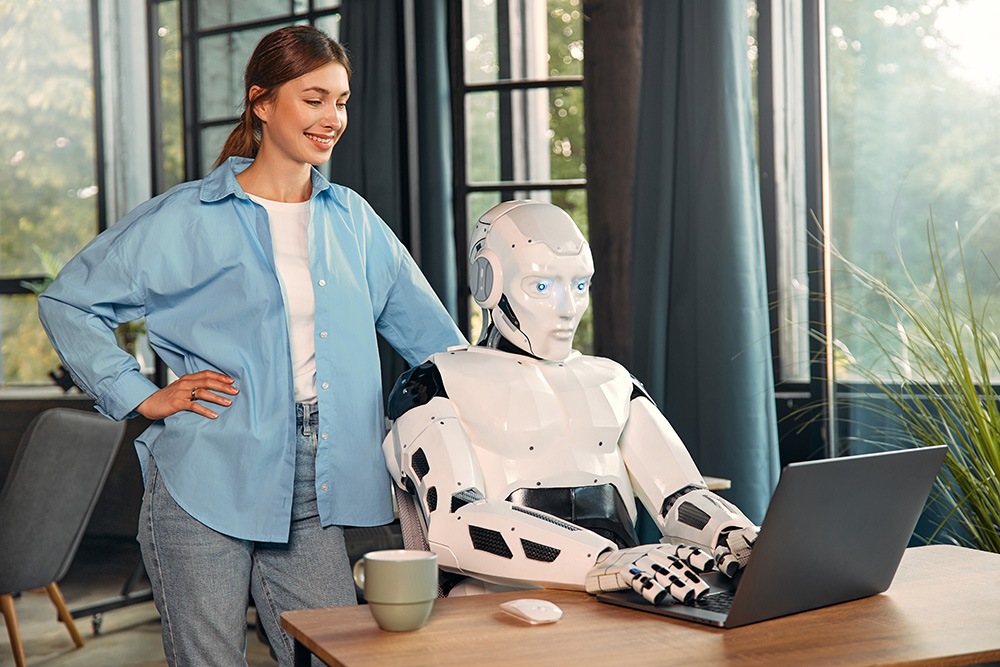In recent years, artificial intelligence has emerged as a transformative force in the digital marketing landscape, particularly in search engine optimization (SEO). As AI tools become increasingly sophisticated, many industry professionals and business owners are asking a crucial question: will AI eventually replace human SEO experts? This comprehensive guide explores the relationship between AI and SEO, offering insights into how these technologies can work together to drive better results.
Can SEO Be Done with AI?
The short answer is yes – but with important caveats. Modern AI tools have revolutionized how we approach SEO tasks, offering unprecedented efficiency in areas like keyword research, content optimization, and technical audits. These tools can analyze vast datasets in seconds, identify emerging trends, and generate data-driven recommendations that would take humans hours or days to compile manually.
However, AI’s capabilities in SEO extend far beyond basic automation. Today’s AI tools can:
- Conduct comprehensive competitor analysis to identify content gaps
- Generate predictive analytics for search trends
- Automatically optimize meta tags and headers
- Monitor and alert for technical SEO issues in real-time
- Create content briefs based on top-performing pages
How to Use ChatGPT for SEO
ChatGPT has emerged as a game-changing tool for SEO professionals, offering powerful capabilities for content creation and optimization. When properly guided, this AI assistant can significantly streamline your SEO workflow while maintaining quality standards.
To leverage ChatGPT effectively for SEO, consider these advanced applications:
- Research and analyze search intent patterns
- Generate multiple variations of meta descriptions for A/B testing
- Create structured data markup suggestions
- Develop comprehensive content outlines based on competitor analysis
- Transform technical SEO reports into client-friendly summaries
The key to success lies in providing ChatGPT with detailed prompts that include your target keywords, audience information, and specific content goals. Always review and refine the output to ensure it aligns with your brand voice and meets quality standards.
Will SEO Be Automated?
While automation is increasingly prevalent in SEO, complete automation remains unlikely in the foreseeable future. The complexity of search algorithms, combined with the need for strategic decision-making and creative problem-solving, ensures that human expertise will remain valuable.
Consider these aspects of SEO that still require significant human involvement:
- Strategic planning and goal alignment with business objectives
- Understanding and adapting to new search engine updates
- Creating engaging, emotionally resonant content
- Building genuine relationships for link building
- Interpreting complex data patterns and making strategic adjustments
Is SEO Still Needed?
In today’s digital landscape, SEO is more crucial than ever. Despite advances in AI and changes in search technology, the fundamental need for optimized, discoverable content remains constant. Search engines continue to evolve, making SEO expertise increasingly valuable for businesses seeking online visibility.
The rise of AI tools has actually amplified the importance of SEO by raising the bar for content quality and technical optimization. Businesses must now compete not just with other human-created content, but with AI-enhanced competitors, making expert SEO guidance even more essential.
How Will AI Impact SEO in the Future?
The future of SEO will likely see even deeper integration of AI technologies, leading to more sophisticated and nuanced optimization strategies. We can expect to see developments in:
Natural Language Processing (NLP) will become more sophisticated, leading to better understanding of search intent and content relevance. Machine learning algorithms will continue to improve their ability to predict search trends and user behavior patterns, allowing for more proactive SEO strategies.
Voice search optimization will become increasingly important as AI assistants become more prevalent in daily life. This will require SEO professionals to adapt their strategies for conversational queries and natural language patterns.
Is Google Okay with AI-Generated Content?
Google’s stance on AI-generated content has evolved to focus on quality rather than creation method. The search engine evaluates content based on its value to users, regardless of whether it was created by humans or AI. However, Google emphasizes the importance of E-E-A-T (Experience, Expertise, Authoritativeness, and Trustworthiness) in content evaluation.
To ensure AI-generated content meets Google’s standards:
- Add unique insights and original research
- Include expert opinions and real-world examples
- Maintain consistent brand voice and messaging
- Regularly update content to ensure accuracy
- Incorporate personal experiences and case studies
The Future of SEO and AI: A Collaborative Approach
The future of SEO lies not in choosing between human expertise and AI capabilities, but in leveraging both to create superior results. Successful SEO strategies will increasingly rely on a hybrid approach that combines AI’s processing power with human creativity and strategic thinking.
Summary and Key Takeaways
- AI is transforming SEO but won’t replace human experts
- ChatGPT and other AI tools can enhance SEO workflows
- Complete automation of SEO is unlikely
- SEO remains essential for digital success
- The future demands a hybrid approach of human expertise and AI capabilities
- Google accepts AI-generated content that meets quality standards
The most successful SEO professionals will be those who embrace AI as a powerful tool while continuing to develop their strategic thinking, creativity, and ability to understand and adapt to the ever-changing digital landscape. As we move forward, the combination of human insight and AI capabilities will define the next era of search engine optimization.

“Just remember that you can test different video lengths until you find what works best –– the sweet spot. Pay attention to your video performance and adjust until you see success.”




